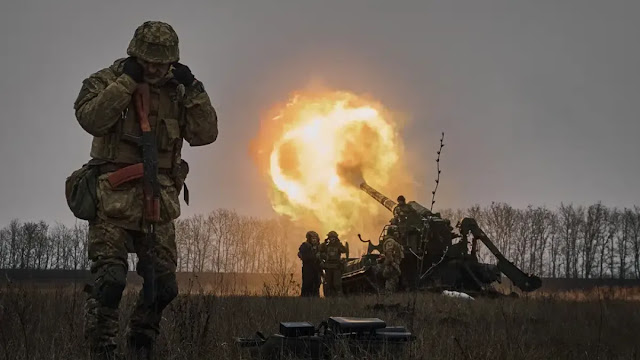INTRODUCTION – The Russia Ukraine conflict is going since 24 Feb 2022, from then this conflict has gained significant attention worldwide. As tensions continue to escalate, it is crucial to examine the involvement of various parties and shed light on their financial contributions. While Europe is supporting Ukraine by giving them financial aid and weapons, on the other hand Europe is also indirectly supporting Russia in many ways by which Russia is earning billions of dollars. In this blog we will delve into the complex dynamics of Europe’s funding of the Russia- Ukraine war, exploring both the direct and indirect means by which financial support may have been provided to Russia intentionally or unintentionally.
Understanding Europe’s Stance on the Conflict:
Europe has consistently taken a strong stance against Russian aggression in Ukraine, actively condemning its actions and supporting Ukraine’s territorial integrity. The European Union (EU) has imposed economic sanctions on Russia, targeting key sectors such as energy, finance, and defense. These measures are aimed at exerting pressure on the Russian government and signaling solidarity with Ukraine.
INDIRECT FINANCING:
Arms Trade:
Europe’s arms trade policies and practices also warrant examination in the context of the Russia-Ukraine conflict. While the EU has implemented strict arms embargoes on Russia, concerns have been raised regarding the potential circumvention of these measures. There have been reports of arms or components originating from European countries finding their way into the conflict zone. The illicit arms trade can undermine peace efforts and fuel the intensity of the conflict.
Purchasing Russian Petroleum Products:
Lack of Transparency and Accountability:
European countries are urging all the countries all over world to boycott Russia and Russian made products. But on the other hand they are also using these products directly or indirectly. Also Europe treats it’s problem as world’s problem but when something happen in other countries, not connected with there interest,they close there eyes. For example- Europe doesn’t said a single word on Armenia Azerbaijan conflict, these countries openly exploit African countries for there interests etc,.
To address concerns surrounding Europe’s potential unintentional financing of the Russia-Ukraine conflict, it is crucial for governments and relevant international bodies to prioritize transparency and accountability. Strengthening financial oversight mechanisms, improving arms trade regulations, and enhancing cooperation between European countries are essential steps to minimize the risk of unintentional support.
Additionally, raising awareness among the public about the complexities of global finance and the potential indirect consequences of economic activities is crucial. Engaging in informed discussions and debates can contribute to fostering responsible decision-making, both at the individual and governmental levels.
Conclusion:
The Russia-Ukraine conflict remains a deeply complex issue, and attributing direct financial responsibility to Europe. While Europe has taken a strong stance against Russian aggression and implemented sanctions, the potential for unintended consequences remains a significant concern. By addressing these issues head-on, promoting transparency, and holding accountable those found to be involved in any intentional financing, Europe can strive towards actively supporting peace and stability in the region.

